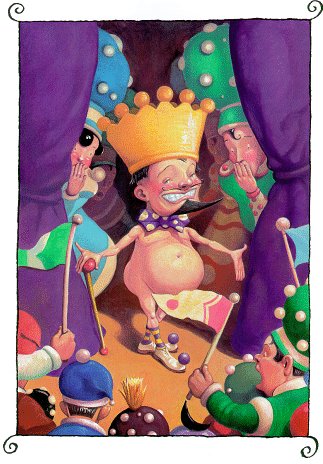Consuming Society depends
on an uninterrupted supply of new consumers. The sons of men who worked to buy $7
Levis (and make the manufacturer of Levis rich), must now work to buy $70 (in Europe and Japan much more)
Levis for
their sons (and make the sons of Levis even richer). In the intervening time, however,
something has changed. The $7 Levis were an excellent value because as "workpants" they
met a need,
protection from the elements and the abrasion of physical labor, and taking account of
inflation
would sell today for about 3 times as much. In fact, that's about what the current
version of the old model sells for. The $70 (in Europe and Japan much more) "stonewashed" Levis are not as durable,
so what is
it that gives them their value? The answer is "status", the status of un-needed
consumption in a context of ignorance. The difference in price is due to the fact that "fools" cannot see
the real value of objects trough the advertisement fog, and thus will not pay for value,
but -like Andersen's famous emperor- for whatever they are told they should see.
Sadly it is the children who are the most taken in, and consider
such things important. Having been thoroughly stripped of any sense of their
own intrinsic worth, substituted with a sense of values based on what is outside
them, these young slaves have no defense against the commercial beasts that -like vultures-
feast
on them.
|

|

